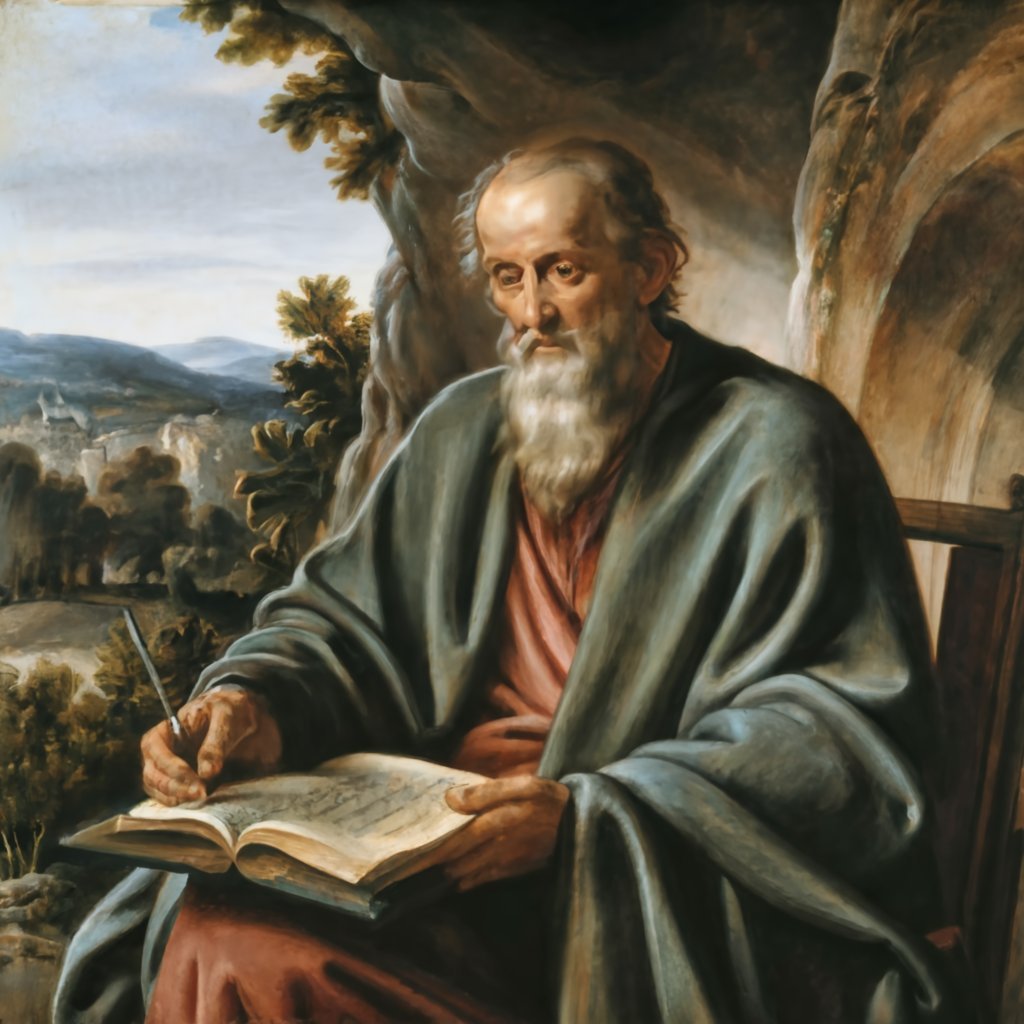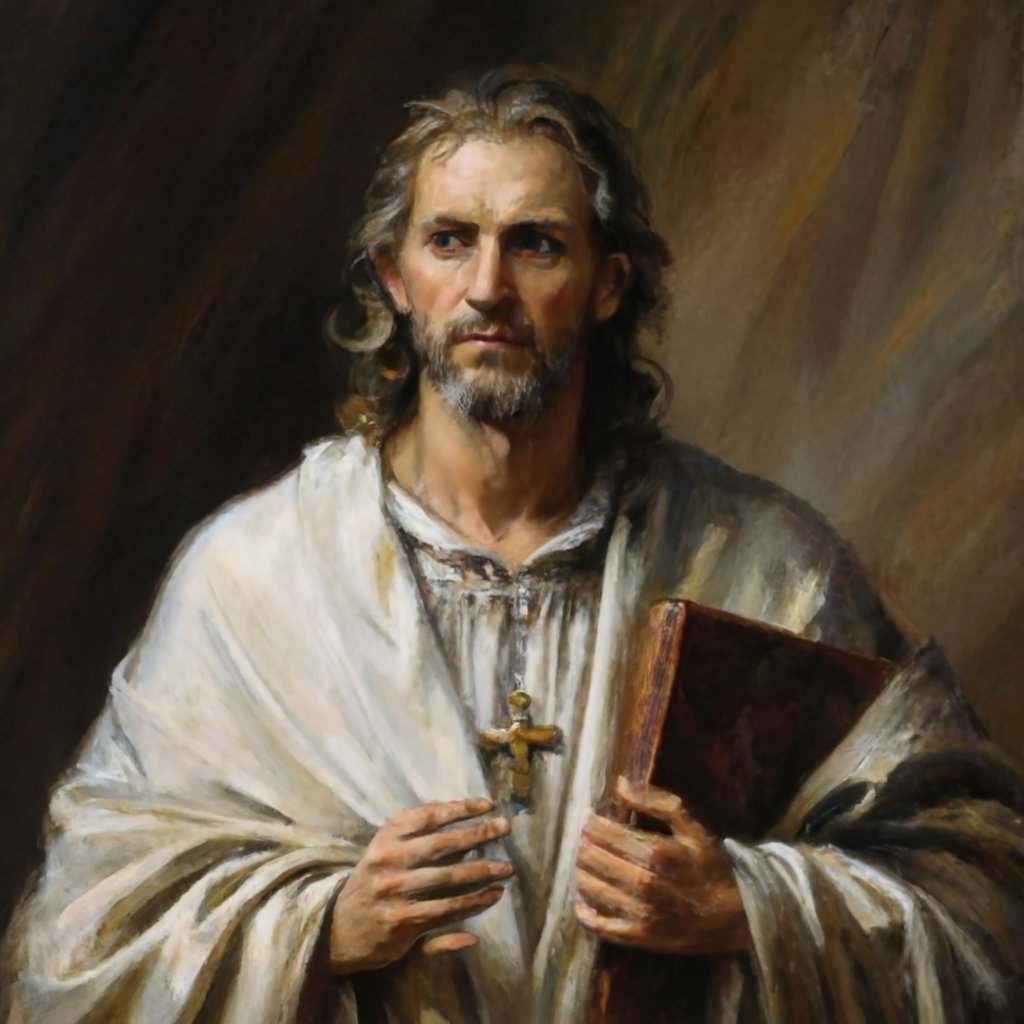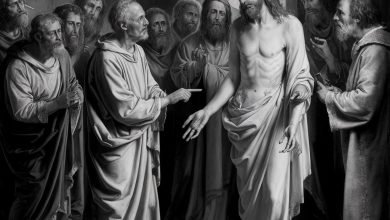
Apostle Paul in the Bible: A Story of Redemption
The story of Apostle Paul is a tale of redemption in Jesus Christ. However, to fully understand his character, we need to look back at his past and his darker side before he became the “Apostle of Mercy.”
The main subject of this message is Jesus Christ, the Son of God. Physically, Jesus Christ was a descendant of David, the great king of Israel. But his true identity was beyond this. By rising from the dead, with the power of the Holy Spirit, he was revealed as the Son of God. This miracle demonstrated the absolute power and greatness of the Lord.
By sending this letter, Apostle Paul expresses his greetings and love to the Christians in Rome and invites them to faith and obedience to the Lord. This message is filled with hope and divine promises and outlines a clear path for the salvation and happiness of humans.
read more : Peter the Apostle in the New Testament
فرست محتوا
Who is Apostle Paul in the Bible?
Apostle Paul, who was known as Saul before converting to Christianity, was one of the prominent leaders of the early Christian Church. He played a crucial role in spreading the Gospel among the Gentiles (non-Jews) in the first century AD, and his missionary journeys covered the entire Roman Empire. Astonishingly, Paul, after persecuting Christians, became one of the most famous apostles of Christ. His remarkable conversion story, which included an encounter with Christ himself, is narrated in Acts, chapter 9.
Apostle Paul founded more than twelve churches and is traditionally considered the author of 13 books of the Bible. These books are actually his letters to various churches, making Paul the most prolific writer of the Bible. Therefore, Saint Paul is often recognized as one of the most influential figures in history.
Apostle Paul before Converting to Christianity
In Acts, chapter 7, we meet Paul, also known as Saul. At that time, the Sanhedrin (Jewish council) was extremely angry with Stephen, one of the Christian deacons. Stephen, a man of faith and power, was accused of blasphemy. The usual punishment for such a crime was stoning.
Here we encounter Saul. As Stephen was being stoned, the witnesses laid their clothes at Saul’s feet (according to custom, the person who threw the first stone would remove their clothes, and another person would guard them). According to Acts, chapter 8, verse 1, “And Saul approved of their killing him.”
Religious commentator Matthew Henry explains the meaning of this verse, stating: “The death of Stephen pleased many—no doubt many were pleased, but one person in particular enjoyed it, and that person was Saul, who later became known as Paul. He approved of Stephen’s killing. He was pleased and satisfied with it. Saul found inner satisfaction watching this bloody scene, hoping to stop the spread of Christianity.”
While the people of God mourned Stephen’s death, Saul did not. Acts, chapter 8, verse 3, states: “But Saul began to destroy the church. Going from house to house, he dragged off both men and women and put them in prison.” Matthew Henry continues to say that Saul did everything he could to stop the mission of Christians. He raided people’s homes and imprisoned them to be tried and executed for their faith. This was a war against Christians, and Saul was the leader of this group.
The Conversion of Apostle Paul
Saul continued to persecute Christians and was on his way to Damascus to arrest them. On the way, a bright light suddenly surrounded him, causing him to fall to the ground. A loud voice questioned him about why he was persecuting him. Saul asked, “Who are you, Lord?” and the voice replied, “I am Jesus, whom you are persecuting.” Jesus told him to get up and follow his instructions. Saul got up from the ground but could no longer see. He was blind for three days, during which he neither ate nor drank.
In Damascus, God instructed one of his disciples named Ananias to lay his hands on Saul’s eyes. Ananias obeyed the divine command and restored Saul’s sight. After regaining his strength, Saul was ready to start his new life with Christ. He no longer persecuted the disciples of Christ but spent time with them. Instead of imprisoning Christian men and women, he began preaching the word of God. Instead of plotting to kill others, he himself was persecuted.
In Acts, chapter 13, verse 9, Saul is referred to by his other name, Paul. Barnabas and Apostle Paul traveled together to do God’s work. When they reached Paphos, they encountered a man named Bar-Jesus, a sorcerer and false prophet. He tried to prevent their work, but due to his deceit and trickery, the power of the Holy Spirit blinded him. Barnabas and Paul continued their journey, preaching and teaching about Jesus Christ.
What Books of the Bible Did Apostle Paul Write?
The New Testament consists of 27 letters. These letters, written on papyrus, contain instructions and guidance on worship, human relationships, faithful living, and other subjects. Thirteen of these letters were written by Apostle Paul, including:
- Romans
- 1 and 2 Corinthians
- Galatians
- Ephesians
- Philippians
- Colossians
- 1 and 2 Thessalonians
- 1 and 2 Timothy
- Titus
- Philemon
Paul believed that God had commissioned him to write these letters. Peter also affirmed that Paul’s writings were inspired by God.
After arriving in Rome in 60 AD, Apostle Paul spent two years under house arrest. During this time, he wrote four of the “Prison Epistles”: Ephesians, Philippians, Colossians, and Philemon. Paul’s writings during this period are filled with encouraging words for the local churches. In these letters, he spoke about forgiveness, divine grace, and conveying God’s truth to others.

Four Life Lessons from Apostle Paul
- God Meets Us Wherever We Are. Jesus Christ spoke to Paul in the midst of his persecution. He did not wait for a change of heart in Paul. God called him while Paul was traveling on dusty and rough roads with feet covered in dust and a heart full of impurity. God meets us in the condition we are in. We do not need to cleanse and purify ourselves before we can meet our Savior. Even when we are immersed in filth and sin, we can call on the name of Jesus Christ with kindness.Do you feel it’s too late to turn to Christ? It’s not. Paul traveled 136 miles (about 220 kilometers) from Jerusalem, where Stephen was martyred, to Damascus. Whether you feel you’ve walked 136 hours or 136 years on a dangerous path, it’s never too late to turn to Jesus Christ. The Lord meets you exactly where you are, ready and able to change your life’s course.
- God Performs Miracles. After Paul’s conversion to Christianity, people were astonished. The same person who was persecuting Christians was now calling people to follow Jesus. How was this possible? Only by the power of Christ. Jesus revealed himself to Paul, and Paul accepted him as he was, and all these events took place in just one chapter of the Bible. The bright light, the blindness, and, of course, the change of heart were all miraculous.Are you looking for a miracle? Just as God performed miracles in the past, He is capable of doing so today. Although God’s goals and plans for us may not always be clear, He can do whatever He wants. So, pray for a miracle in your life. While God does not always answer our prayers in the way we want, He is all-knowing and has plans and goals beyond our understanding. Remember that the same God who transformed the hard heart of a murderer is still alive and performing miracles today.
- God Can Use Anyone for His Purposes. Paul was the least likely person to spread the message of the Gospel. He had even watched Stephen, a man doing the same work, being stoned. He himself persecuted Christians and sought to extinguish the light of God. But in Acts, chapter 9, verse 15, it is written that “the Lord said to Ananias, ‘Go! This man is my chosen instrument to proclaim my name to the Gentiles and their kings and to the people of Israel.'” God chose Paul to proclaim His name. While He could have chosen a “purer” and more righteous person, God chose him.God can use anyone, no matter what we have done or what we have been through. Paul’s story is impactful. He went from one extreme to the other. God can use us and our “baggage” for His purposes. In Acts, chapter 9, verse 21, it is written: “All those who heard him were astonished and asked, ‘Isn’t he the man who raised havoc in Jerusalem among those who call on this name? And hasn’t he come here to take them as prisoners to the chief priests?'” Paul’s impact was greater despite his past. People witnessed his heavy past turn into a powerful present.
- God Wants Us to Share the Good News with Others. Apostle Paul was very grateful for his salvation through Christ and wanted others to share in the Gospel message. After believing, the Holy Spirit filled Paul and empowered him to share the Good News with others. He traveled around the world on foot, proclaiming the name of Jesus and telling his story. Paul’s story highlights the miraculous nature of God and His ability to redeem: “All those who heard him were astonished and asked, ‘Isn’t he the man who raised havoc in Jerusalem among those who call on this name? And hasn’t he come here to take them as prisoners to the chief priests?'”We too have our own story to tell. Others can benefit from hearing our testimony of faith and how God has overcome challenges and hardships in our lives. God wants us to share these stories to teach others about Christ and His salvation. We have the same Holy Spirit that Apostle Paul had. We can use this power to lead others to Christ.
There is much to learn from Apostle Paul and his transformation. Paul’s story, from a persecutor of Christians to a preacher, shows that every life is redeemable. No matter where we are on our journey, God can meet us, transform us, and use us to impact His kingdom.






